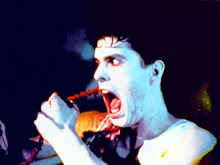
Directed by: Billy Wilder
Written by: Billy Wilder + I.A.L. Diamond
Starring: Jack Lemmon, Shirley MacLaine, Fred MacMurray, Ray Walston, Jack Kruschen, David Lewis, Hope Holiday, Joan Shawlee
Bud Baxter (Lemmon) is a struggling clerk in a huge New York insurance company. He's discovered a quick way to climb the corporate ladder - by lending out his apartment to the executives as a place to take their mistresses. He often has to deal with the aftermath of their visits and one night he's left with a major problem to solve, when the girl he loves, Fran Kubelik (MacLaine,) who also happens to be the mistress of his boss, tries to kill herself in his bedroom.
I expected so much from this film, as it's always referred to as a classic. In my opinion, it's a ridiculously overrated film. The main characters are absurd and their motivations make little sense. The supporting cast plays characters right out of a comic book. All this superficiality and absurdity wouldn't matter at all if only this were a proper comedy. Unfortunately, it isn't one. This is a romantic melodrama with some humorous one liners.
The film plays up the near-perfection and integrity of its two main leads, but it simply doesn't wash in MacLaine's case. If she is such an angel why is she a home-wrecker who goes out with a married man with kids? Her suicide attempt is too far-fetched and overly dramatic. And what's with Lemmon's character? This guy is so self-sacrificing and noble that he should have been nailed to the cross in the last scene.
The basic plot outline of the film is good and there was real potential there for a terrific situation comedy, but Billy Wilder took the easy route and turned this into a schmaltzy romance film with the Hollywood violins accompanying every schmaltzy scene. The charisma of the two leads simply isn't enough to drag this movie out of the mud. The jokes and gags that there are, are mostly primitive and outdated at best.
Final Verdict: Skip It






















